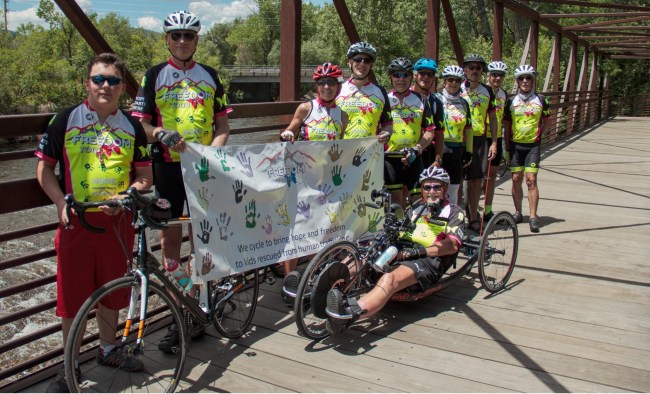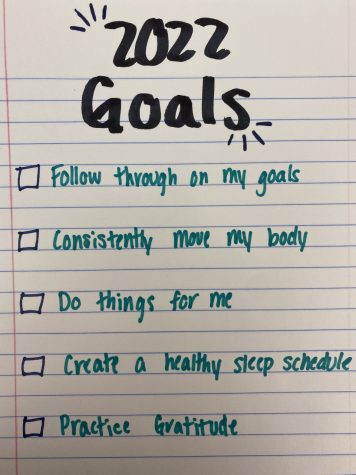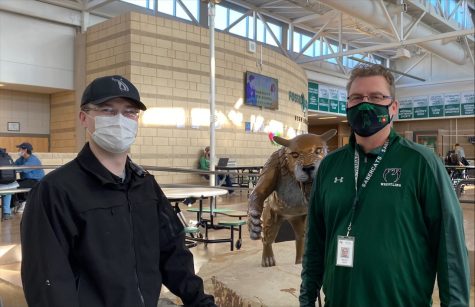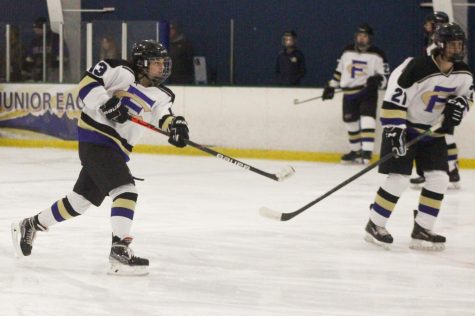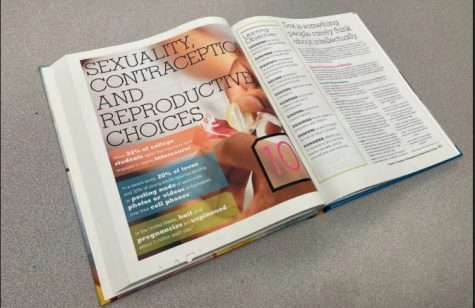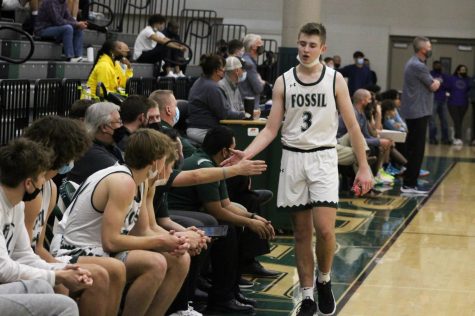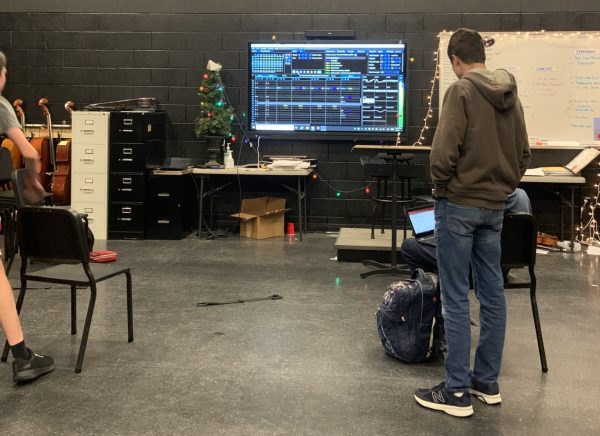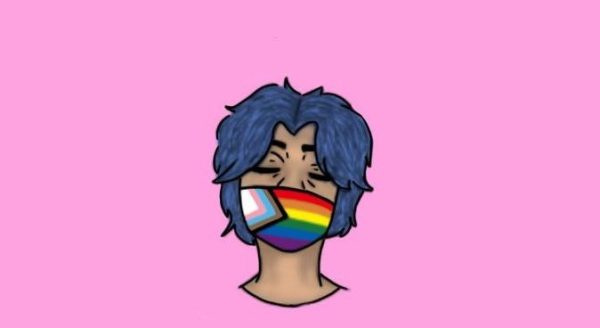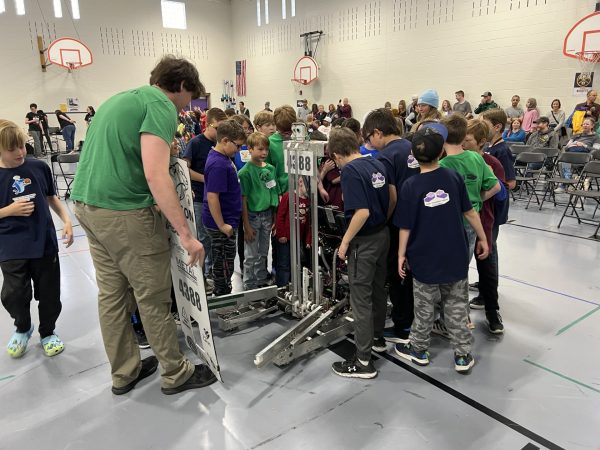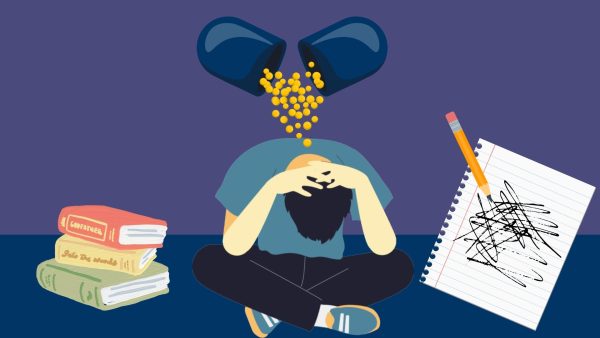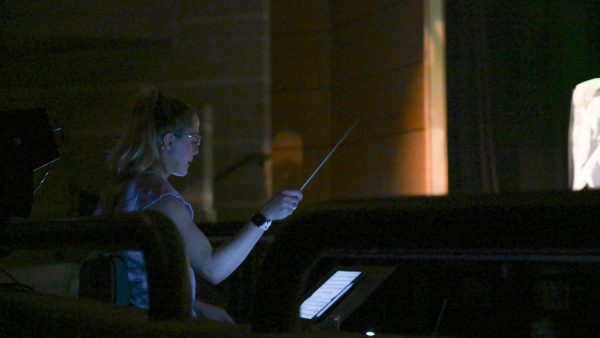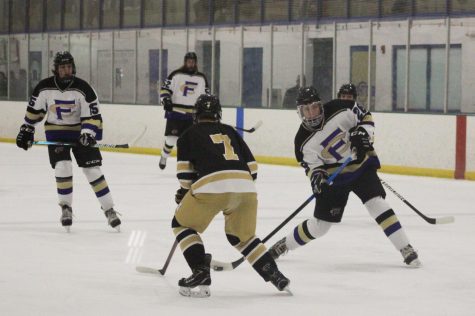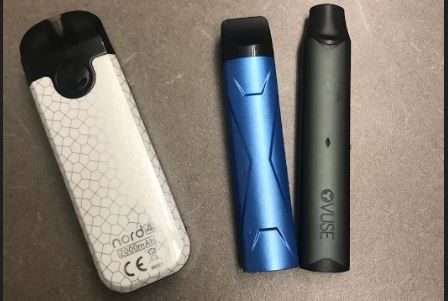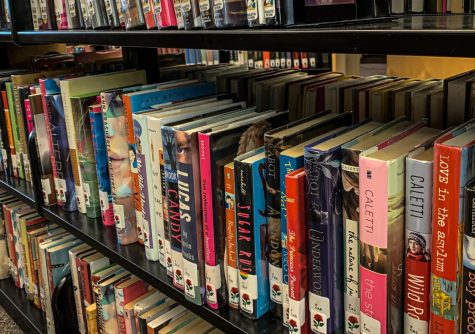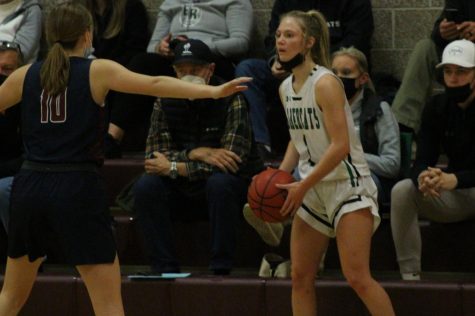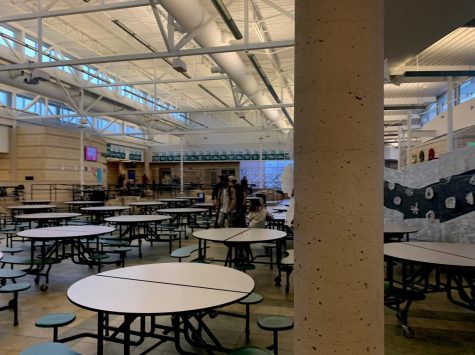Rich’s Ride takes a stand against modern day slavery
Bikers from the 2020 freedom tour, along with Rich Dixon (front) pose during a break in their ride. This group biked over 200 miles in four days.
It is estimated that 25 million people around the world are trapped in modern day slavery. These people, both adults and children, are often exploited for forced labor or commercial sex. Human trafficking is a serious problem facing the world today, and former Poudre School District teacher Rich Dixon decided to do something about it.
Every summer, Dixon organizes bike rides to raise money to fight the issue, called the Freedom Tour. He donates all proceeds to a home in South Asia that rescues kids from human trafficking. He has been doing this for ten years. On top of that, Dixon is a wheelchair user, and shares his story with the hopes to inspire others to overcome their own obstacles.
It was just another day for Dixon in 1987 when his entire life changed. He was on his roof, hanging Christmas lights. Dixon recalls the day as, “One minute I was on the roof, enjoying life, and the next minute I was looking up at a paramedic saying, ‘hey, everything’s gonna be okay.’ I had no idea what happened. About three hours later the doctor said, ‘paralyzed from the chest down.’” Dixon fell nine feet to the ground, which he claims “wasn’t very far” to end up with an injury as serious as his.
After the accident, Dixon became very angry and depressed. He completely gave up on himself and life. “You can’t have a life, when you’re paralyzed from the chest down at 36 years old, right? I just wanted them to leave me alone, and roll me into a corner, so I could die.” That was Dixon’s mindset when he first became wheelchair bound. He sat inside for twelve years, not doing anything.
Hope lets us believe our pain won’t be wasted. Hope changes what’s possible.
— Rich Dixon
In a TEDx Talk he did in 2015, Dixon recalled this time in his life as a time without hope. “I had lost hope, and without hope, we die inside, even when our hearts keep beating. Hope is what lets us dream. Hope lets us look forward with a confident expectation of the future. Hope lets us believe our pain won’t be wasted. Hope changes what’s possible.”
It was the people that worked hard to not let Dixon give up that brought him back to loving life. In 1999, one of Dixon’s friends encouraged him to try hand cycling—basically biking with hands doing the pedaling instead of feet. Dixon at first thought this was a stupid idea, and believed there would be no way he could be able to do it. Finally, after his friends bugged him for so long, Dixon gave in; not because he wanted to try, but because he thought it would get his friends off his case. It took him thirty minutes to ride up and back a block, because he was so weak; he has not been moving much in twelve years. Despite how much time it took, Dixon was hooked.
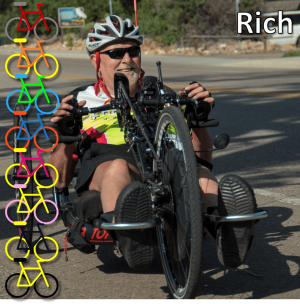
“When I got done with that, I couldn’t wait to do it again. It was so amazing. The feeling of freedom, that I got out of that, was indescribable,” Dixon reflected. For the first time, in over a decade, he had found hope once more.
In 2011, Dixon participated in the ride of his life. He handcycled 1,500 miles along the entire length of the Mississippi River. He began in Minnesota, and ended in New Orleans. It took him eight weeks. Dixon’s wife, Becky, was his “one person support team” along the way. From this ride, Dixon raised 60,000 dollars for Convoy of Hope, an organization that feeds starving children around the world.
When planning this ride, Dixon believed it would be a one-time thing. “When we got done, we thought we were done. On the way home, [Becky and I] looked at each other and said, ‘we’re not done, are we?’”
Dixon met some people on his ride who were also participating in a fundraiser bike ride. They were riding 500 miles to raise money for the International Justice Mission, and taught him a bit about the cause. The International Justice Mission aims to end modern day slavery and human trafficking. Because of this, Dixon took the time to visit the National Underground Railroad Freedom Center in Cincinnati.
“Visiting that place was life changing, because I had no idea about modern day slavery. The history that I learned in school was that slavery ended in 1865 when the Civil War ended. Well, that’s just not true. And I was absolutely shocked. Throughout that tour, we had the opportunity to learn more about what’s going on right in front of our eyes,” Dixon said. From there, Dixon found a new cause he wanted to raise money for, and the Freedom Tour was born.
The history that I learned in school was that slavery ended in 1865 when the Civil War ended. Well, that’s just not true. And I was absolutely shocked.
— Rich Dixon
Dixon and his wife created a nonprofit called Rich’s Ride, and they held their first group ride in 2013. It started simple, with just hanging a sign up at their church asking if anybody wanted to go biking with them. Dixon recalled, “We really didn’t know if anybody would go, we had no idea. No idea what we were doing, no idea how to organize a group bike ride. We just said, we think we want to raise some money for this organization called Project Rescue. So let’s see if anybody wants to go riding, and seven people were crazy enough to go with us.”
Over the years, the Freedom Tour has evolved to include many different ride routes and lengths. The original route was from Cheyenne to Raton Pass, but Dixon “added a one day ride for people who couldn’t take a week off or weren’t stupid enough to try to ride 500 miles but still believed in the cause,” he said. Three years ago, the Freedom Tour adopted the Colorado Mountain Tour route, which rides over four mountain passes. Dixon likes to mix up the routes every few years, to keep things different and exciting.
In the nine years of doing the Freedom Tour, Dixon and his fellow riders have raised over a quarter of a million dollars for a home in South Asia. The nonprofit Project Rescue supports an orphanage called the “Home of Hope,” which houses 22 kids who have been rescued from human trafficking. This house cares for 22 to 25 kids at one time, and looks after them until they graduate from high school.
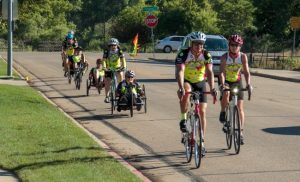
“Those kids were born to mothers who were forced into sexual slavery. And that would have been their lives as well. They were rescued out of that life, and they live in this orphanage. Basically, they have a shot at a kind of life that would never have been possible otherwise,” Dixon explained.
The reason Project Rescue separates these children from their mothers is because these mothers are still forced into this slavery, and it is too dangerous for them to leave. If their kids grow up with the mothers, they will grow to end up in slavery as well. By giving their children to places like the Home of Hope, these kids get a chance to break the cycle of slavery, and have a chance to be free.
Dixon and his wife wrestled with how to fight human trafficking when first starting the Freedom Tour. They did not want to give their money to a big organization, because they wanted to know where their donations would be going and how they would help. Therefore, Dixon selected the Home of Hope as the focus point of his support.
“We know the kids, we’ve watched them grow up. We’ve been with these kids for now nine years. Most of them were five, six, seven years old when we first started working with them. We get to see pictures of them once in a while. There’s a connection that wouldn’t be there if we were just handing our money to an organization that fights human trafficking.”
Dixon’s dream goal is to fully support the Home of Hope. He wants to be able to provide for all the needs of this home to help them have as many resources as possible. In order to do this, they would have to raise 100,000 dollars a year. While they are not quite there yet, Dixon is hopeful that the tour can reach this goal.
For Dixon, getting out and riding has always been his favorite part of the Freedom Tour. He enjoys getting to meet and talk with the riders and volunteers, and share with people not a part of the event about the cause.
This year, the Freedom Tour Classic is offering many different options for those who want to participate. On June 19, there is a one day event with different routes. People can ride for 15, 25, 50, or 62 miles, depending on which route they choose. The shorter tours are perfect for the family to get involved, and are not too intense for those who want to ride leisurely. This year Dixon has also added a two day ride, which will be on June 19 and 20. Riders will go 100 kilometers on the first day, and 100 miles on the second.
For those who want to really challenge themselves, the Colorado Mountain Tour is a six day ride on July 22 through July 27. It is 290 miles long and contains 20,800 feet of climbing. Meals, snacks, support, and overnight housing will be provided for this ride.
Besides biking, there are many other ways people can get involved with the Freedom Tour. These events would not be possible without hundreds of volunteers annually. These volunteers drive support vehicles, set up snack and hydration stations along the routes, help with registration, and prepare meals for riders. This is a way to support the fight against human trafficking without riding, and it is just as important.
Dixon wants people to know that the Freedom Tour is more than a fundraiser. He believes it is a community. People come together annually, meet new people, and form close friendships. Dixon claimed, “Those friendships last beyond the time that we’re riding bikes together.”
Those friendships last beyond the time that we’re riding bikes together.
— Rich Dixon
Additionally, Dixon wants to raise more awareness to human trafficking through getting more people involved. Whenever someone signs up to volunteer or ride, they tell their friends, and Dixon wants people to understand the cause he is riding for and why it is important. He does not believe in guilting others into donating, but that educating is more important. In the long term, this will be more effective in spreading awareness than convincing someone to give a couple of dollars, in Dixon’s opinion.
Although he is a wheelchair user, Dixon feels hopeful and free, thanks to his amazing support system and bike. He is continuing to organize bike rides to support the Home of Hope, and to bring awareness to modern day slavery, because it is far from gone in 2021.
Your donation will support the student journalists of Fossil Ridge High School. Your contribution will allow us to purchase equipment and cover our annual website hosting costs.
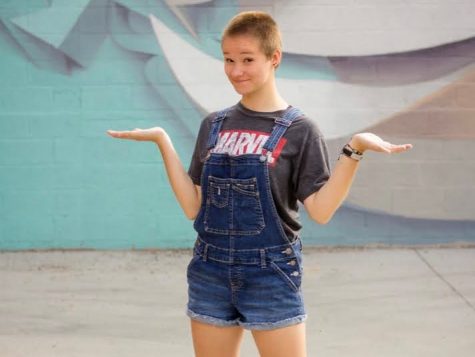
Co-Editor in Chief and senior Anna Henning is ecstatic to be entering her fourth year of journalism. Henning has grown up loving writing, and has taken every writing class she can. She really enjoyed taking Creative Writing freshman year, but Journalism II has always been her favorite class. Henning...




